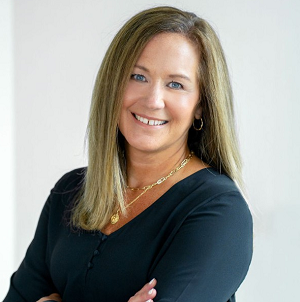Top-Level Takeaways
- Jeanne D’Arc Credit Union’s EmergeStrong Account provides employees with a $400 deposit to boost emergency savings and enhance financial stability.
- Affinity Plus FCU established an employee-only branch that offers financial services with enhanced privacy, fostering trust and support among staff.
- Both credit unions say these programs strengthen company culture and help build a more financially secure and productive workforce.
As the relationship between wellness programs and credit unions continues to evolve, some industry leaders are turning their attention to their own employees.
With millions currently living paycheck-to-paycheck, inflation continues to impact Americans’ ability to weather rainy-day emergencies. A recent economic wellbeing study from the Federal Reserve found 37% of Americans don’t have the cash to cover a $400 emergency.
This statistic helped inspire Mark Cochran, CEO of Jeanne D’Arc Credit Union ($2.1B, Lowell, MA), and the rest of the executive team to take action.
“We discussed it and said, ‘Well, that statistic impacts our employees, too. So, what can we do?’” says Robin Lorenzen, chief marketing officer at Jeanne D’Arc.
The solution? Establishing the credit union’s EmergeStrong Account.
Announced at a companywide event in February, all full- and part-time employees who deposited $100 into their EmergeStrong account by mid-March received a one-time $400 deposit from the credit union, thereby giving participants an emergency fund of $500.

“There were tears,” Lorenzen says. “There were gasps. People just couldn’t believe that the credit union would do that to help them. You don’t have to justify how or why you need to use it. Once it’s in the account, it’s yours. You define what an emergency is for you.”
The EmergeStrong Account is an interest-bearing account with no penalties or constraints on withdrawals. Of the more than 250 employees at Jeanne D’Arc, 96% took advantage of the offer.
The account is available on a rolling basis for new employees or those who had not met the eligibility requirements in March.
Jeanne D’Arc has also signed on with Greenpath Financial Wellness to provide confidential financial coaching to members and staff alike.
“It starts in-house,” Lorenzen says, “How do we help our own employees become financially secure so that they in turn are in a place where they can better help our members?”
A Company Culture Built on Trust
Taking a different approach to employees’ financial health, Affinity Plus Federal Credit Union ($4.2B, Saint Paul, MN) established an employee-only branch nearly 12 years ago to better look after team members’ financial health.

“We really wanted to take privacy and employee integrity to its own space,” says Jamie Mahaffey, senior employee consultant. “That way leaders or colleagues aren’t involved in each other’s personal finance and lending decisions.”
Employee memberships are flagged in the system as employee accounts, automatically creating restrictions for the sake of privacy. That means account balances, direct deposit information, and personal information such as dates of birth and social security numbers are all kept private.
“All of those things are protected so that coworkers or anyone outside of the employee branch can’t view their accounts,” Mahaffey says. These privacy protections also extend to anyone else included in the membership, such as spouses, children under age 18, or even elderly parents.
The employee-only branch offers all the same financial services as non-employees receive, though there are some employee-specific benefits, including high-yield money market accounts (5.3% on balances up to $5000), budgeting assistance, debt consolidation, and more.
“The benefit of them having that experience is that they in turn get to use that same language and information to better serve our members,” Mahaffy says. “We’re really seeing that type of thing come full circle.”
Right now, more than 96% of its nearly 600 staffers use the employee-only branch. All told, the credit union serves more than 100,000 members.
“The impact on company culture has been huge,” Mahaffy says. “I think that it all really starts with vulnerability and the trust that we have been able to build.”
